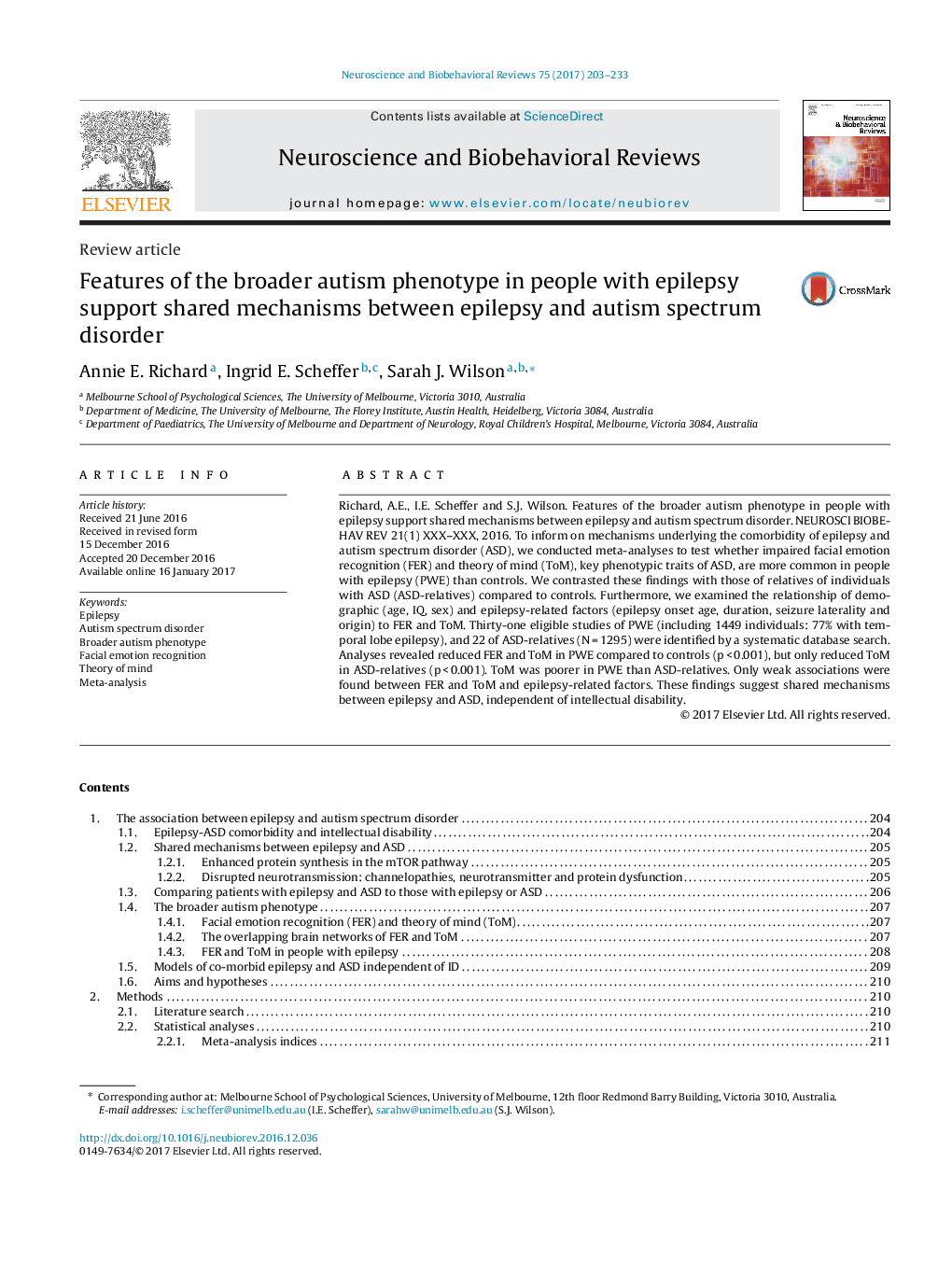| Article ID | Journal | Published Year | Pages | File Type |
|---|---|---|---|---|
| 5043510 | Neuroscience & Biobehavioral Reviews | 2017 | 31 Pages |
â¢Meta-analysis of social cognition in epilepsy and relatives of people with autism.â¢People with epilepsy (TLE and other epilepsies) have a social cognition deficit.â¢The social cognition deficit is less severe in relatives of people with autism.â¢Reduced social cognition is associated with an earlier age at epilepsy onset.â¢The findings suggest shared neurobiological mechanisms between epilepsy and autism.
Richard, A.E., I.E. Scheffer and S.J. Wilson. Features of the broader autism phenotype in people with epilepsy support shared mechanisms between epilepsy and autism spectrum disorder. NEUROSCI BIOBEHAV REV 21(1) XXX-XXX, 2016. To inform on mechanisms underlying the comorbidity of epilepsy and autism spectrum disorder (ASD), we conducted meta-analyses to test whether impaired facial emotion recognition (FER) and theory of mind (ToM), key phenotypic traits of ASD, are more common in people with epilepsy (PWE) than controls. We contrasted these findings with those of relatives of individuals with ASD (ASD-relatives) compared to controls. Furthermore, we examined the relationship of demographic (age, IQ, sex) and epilepsy-related factors (epilepsy onset age, duration, seizure laterality and origin) to FER and ToM. Thirty-one eligible studies of PWE (including 1449 individuals: 77% with temporal lobe epilepsy), and 22 of ASD-relatives (N = 1295) were identified by a systematic database search. Analyses revealed reduced FER and ToM in PWE compared to controls (p < 0.001), but only reduced ToM in ASD-relatives (p < 0.001). ToM was poorer in PWE than ASD-relatives. Only weak associations were found between FER and ToM and epilepsy-related factors. These findings suggest shared mechanisms between epilepsy and ASD, independent of intellectual disability.
